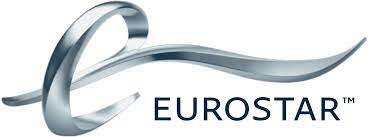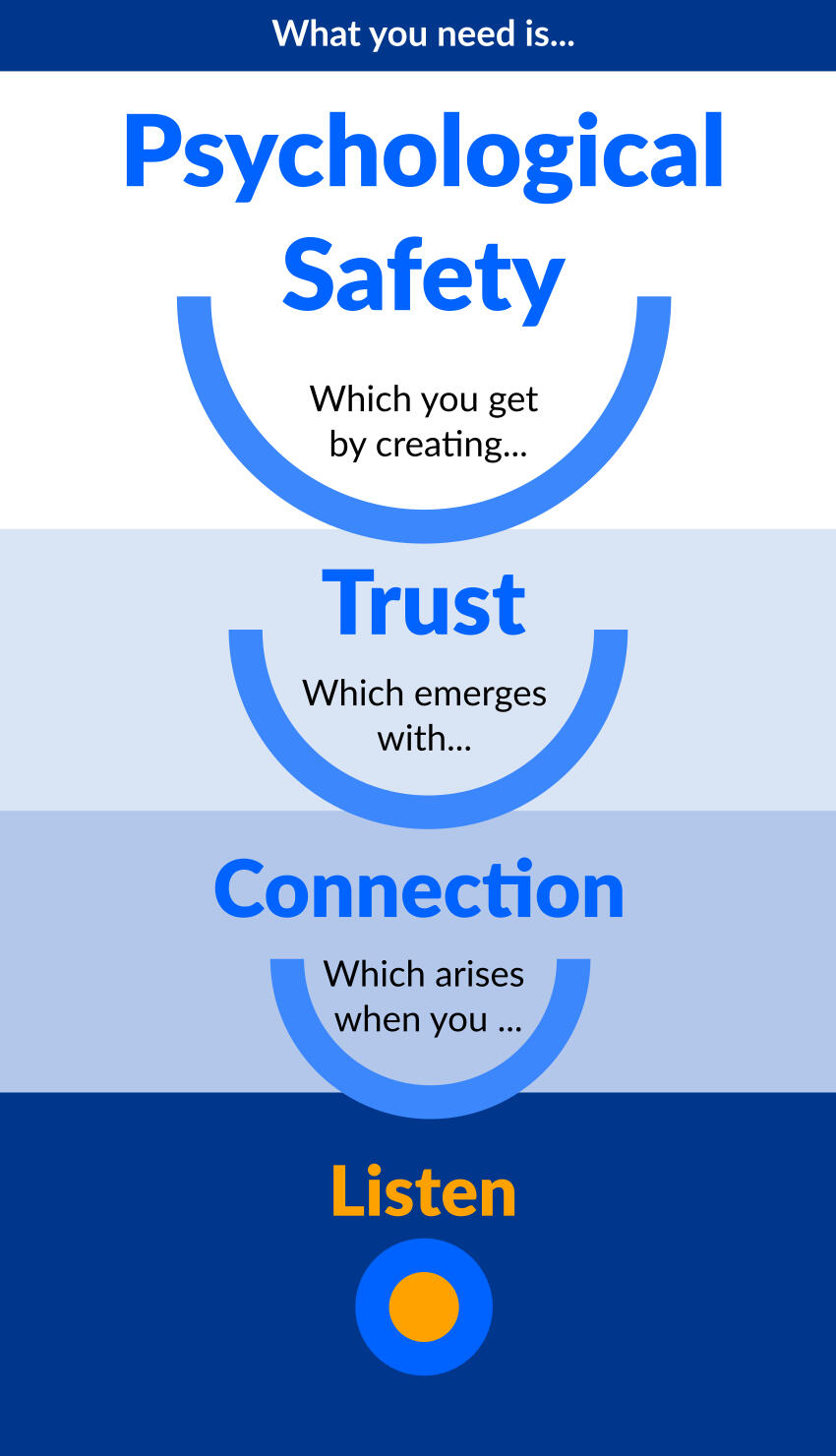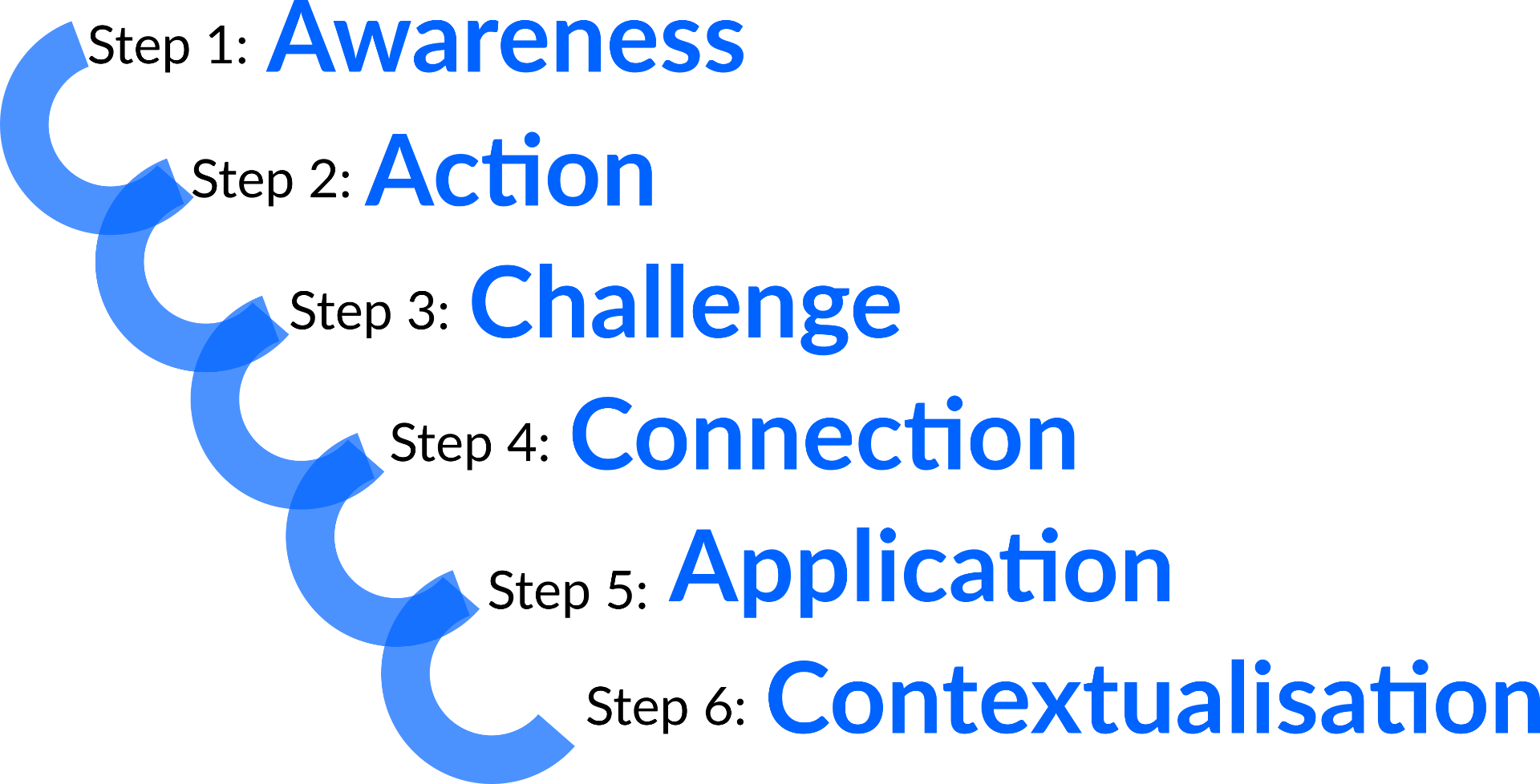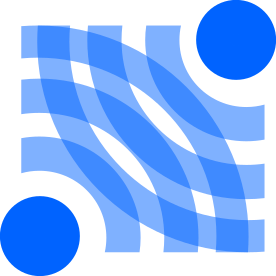
Transforming teams
Observe clear changes in behaviour in weeks with a carefully crafted programme of experiential training.
Recruitment and retention of staff is the biggest challenge facing businesses over the next few years. Anxiety, frustration and stress are on the rise for both business owners and their teams. Poor communication is a major factor.The last 2 years have intensified existing issues with employees feeling even more disconnected as they adapted to the sudden switch to homeworking and now either hybrid working or a return to the office. This has led to feelings of isolation, lethargy, and a sense of working hard yet feeling less supported. The result is low productivity, staff being off sick and high turnover.To turn this around, it is critical to address the basic skills needed for a highly productive, collaborative and engaged teams.
I deliver these skills with a six week course that has been designed to have immediate impact, transforming your team dynamics and creating a well functioning unit. I do this by creating a listening culture. When listening takes place it opens the door to connection and collaboration. There is no longer a need to hide mistakes and it becomes possible to bring the whole self to work. Stronger relationships and improved wellbeing will lead to more creativity, innovation and higher staff retention.For an even quicker way to find out what needs fixing, send me 5 audio recordings of your meetings and I will provide you with an actionable report. Go to Dynamic Team Diagnostic to get started.

Lisa is a people person. She has the unique ability to instantly build a rapport with clients and maintain excellent relationships. Verity, LondonTown
The skills learnt have helped us to work better as a team internally but also with our clients. We use the skills and techniques every single day
— Joe Harrod, COO Signify.ai





A six week online course for leadership and teams
Creating a listening culture will:
- Increase trust and psychological safety
- Boost engagement
- Reduce staff churn
- Increase productivity
- Stimulate innovation
- Reduce conflict
- Improve mental health

Lisa is a true professional, exceedingly knowledgeable, productive and results orientated. She also has a wonderful ability to build confidence and trust with people she works with. Dominic
Structured, scalable format
- Six 90 minute, online workshops
- One workshop per week
- Led by expert facilitators
- 4 to 12 people per session
These skills cannot be learned in isolation, or by watching a video.This programme delivers real results by using the dynamics of a group to highlight the underlying interactions.
I was always so impressed by her ability to wade through details and quickly pick up and extract what's most important. Mona, Expedia
A six stage methodology

This programme uses experiential learning, supported by expert facilitation, to create a highly engaging learning environment. The sequence of sessions is designed to enable participants to rapidly identify and develop the skills and practices they need.
"Good listening can function restoratively, even therapeutically. A good listener’s attention creates space for speakers to bring all the messy, conflicting, broken off, and forgotten parts of themselves into the conversation, where they can be knit back together and become whole again." Dr S Notess; building a philosophy of listening
Make change possible
**Developing the ability to listen is one of the most most valuable strategic investments possible. **The attributes of a healthy workplace culture are now well established. We need cultures that promote psychological safety, inclusivity, trust and engagement.This programme has been developed based on the evidence of the underlying individual behaviours necessary to create strong, fully functioning teams. First among these is active listening.
Active listening requires the listener to fully focus on what the speaker is communicating. So often when listening, we are just waiting for a pause so that we can jump in and speak. Or we feel compelled to offer solutions, to fix or solve. Simply listening, open and fully connected to what is being said is a powerful experience for both parties. Truly transformational.
About

Lisa Farron - Programme creator
Lisa's ability to cut through the fug, get to the point and move projects along, while leaving you and her with smiles on your faces is a powerful asset. Richard, Camden
In my 20 year career I have closely observed all types of team function and dysfunction. This insight led to me developing a simple, effective system which has an immediate impact on struggling teams.My journey began in the travel technology sector where I have worked with start-ups and challenger brands as well as household names like Expedia and American Express.Having seen inside a variety of different organizations, I came to realise that there was a common set of issues that prevented individuals and teams from being engaged, productive, innovative and connected.I worked with a small team where there were high levels of stress and conflict as well as client dissatisfaction. It felt like they were working flat out but not achieving results. They couldn’t understand what was going wrong or how to fix it.I was able to see that poor communication between team members but also between different teams was at the root of the issues. This deepened my conviction that listening and connection are the most important aspects of a successful team.Since the pandemic these problems have been magnified. There are increasing levels of stress, disconnection, lethargy and isolation leading to staff being off sick with stress or even leaving their jobs.I solve these issues with my straightforward strategies that make a difference from the start. With small changes to listening, communication and collaboration practices, the impact is felt immediately. I give companies the tools and skills needed to develop happy, collaborative, productive and profitable teams.I can do the same for you.
Contact
Contact me to chat about how I can help you transform your team
Case studies
Productivity and innovation
I worked with a creative think tank focusing on human rights for children and young people. With a small team it was important that they were effective with time and resources.In speaking with the CEO she felt that the organization lacked energy and innovation, she didn’t want to have to tell people what to do or lead all projects and felt that the team, although committed, lacked the ability to take the initiative.After meeting the team it was clear that much of the hesitancy and reticence displayed came from not having enough clarity on roles, responsibilities and overall objectives. It was not obvious to them the overall mission and how they could contribute. Each person had tasks and jobs to complete but lacked confidence in their understanding of the bigger picture. There was also uncertainty of where they could take action and where they should ask for guidance. Team members also felt siloed, lacking information on other projects that colleagues were working on.By introducing simple strategies for improving communication and in particular listening, things turned around fast. Once communication improved this was followed by better collaboration and connection.The team felt safe to take risks and move projects forward independently.


Collaboration, engagement, connection
I worked with a small company with big ambitions. In the wake of the Cambridge Analytica scandal they were keen to show that there is another way to use data for good. Being a new team they had many conflicting priorities and each person held several roles.One issue that many small businesses face is not wanting to turn down any clients or potential business leads. However, in the fast-paced environment there was a disconnect between what was being promised to clients by the sales leads and what could be delivered by the team. Staff members were double counted on projects and were left frustrated with not knowing what to focus on first or being able to do a thorough job on each project. Clients also became frustrated with missed deadlines and the sales team spent valuable time trying to renegotiate or explain missed deadlines.The result of this was a stressed and demoralised team as well as frustrated clients who were at risk of walking away.At the outset I identified communication as being the weak spot and quickly introduced a communication programme with listening at its core. This investment transformed the way the team worked together, and in six short weeks there were changes visible throughout the organisation.With an improved ability to talk to one another they now collaborate on client quotes to ensure realistic project scope and timelines. This means deadlines are met for happy clients and the staff are no longer stressed out trying to achieve the impossible.As the team learnt better communication strategies, they also built stronger personal connections with each other. These connections facilitated collaboration and enabled a much smoother transition to distributed working during the pandemic. There are strong bonds of trust between team members which also allows for the freedom to innovate and confidence to share mistakes as opportunities for learning.There is a new confidence in talking with clients, winning new business and delivering results.

Building psychological safety
Lay the foundations of a healthy workplace culture in six weeks
Psychological safety was discovered as a critical element in successful teams by Google through their research in Project Aristotle. But what exactly is it?In a psychologically safe environment, there is a high level of trust between team members, they are able to take risks and be themselves. This in turn allows for a curious, questioning culture to develop where the status quo can be challenged and creativity and innovation flourish.The big challenge is where to start, it can seem overwhelming. I can solve that for you.
To build psychological safety...
Resources
I have created a blueprint for building the culture required for transforming teams which covers both the development of people and processes.Below are a series of tools which include canvases and exercises to complete with your team which will get you started. If you would like more specific advice and guidance on how to use these tools, book a free 30 minute chat with me.
Meetings
Ineffective meetings are a big waste of time and money. Yet also one of the easiest places to intervene and discover what’s going wrong.This pack contains a canvas and simple instructions on how to lead a discussion to discover your team's thoughts on meetings and begin a plan for change.
- One canvas
- One instruction document
- 60 minutes to complete
- Up to 8 people
Listening
Listening is a fundamental skill required for creating a culture that can work ethically with data. Of course we listen every day, but on the whole the quality of listening is poor.In this exercise you will experience listening in a way that will help you and your team to move towards the type of listening required.
- One exercise
- 10 minutes to complete
- 20 minutes to discuss
- In pairs, up to 12 people
Connection
Feeling a sense of connection with team members allows each person to feel safe to ask questions and admit to not knowing. The sense of connection develops as we get to know each other as a ‘whole’ person, not just the side we bring to work.This exercise will help the team to find out more about each other. The outcome will be a deeper sense of connection and lots of laughter.
- One exercise
- 30 minutes
- Up to 6 people
Psychological safety
Feeling safe within a team allows for participation and new ideas to be put forward. This is referred to as psychological and it is made up of many different behaviours.I have created this canvas to help you to explore what that would mean for your team. The canvas guides you through a series of questions to explore different aspects of psychological safety and discover some concrete actions that you can take.
- 6 prompt questions
- 60 minutes to complete
- Up to 10 people
In a free 30 min chat, I can help:
- Plan your session
- Provide prompts or sample answers
- Encourage participation
- Ensure concrete outcomes
Leadership coaching and mentoring for executives and business owners
Executive coaching and mentoring offers valuable support if you’re a business owner or leader navigating the challenges of your role, stepping into something new, or wanting to become more effective in your work. It’s also useful if you’re looking for a sounding board—someone impartial, confidential, and experienced—to help you think things through. If you're considering coaching, let’s have a chat to explore what kind of support would be most helpful for you.
What can coaching help me with?
Self-Awareness & Emotional Intelligence
Understanding your own triggers, patterns, and blind spots
Regulating emotions under pressure
Receiving feedback without defensiveness
Recognizing the impact of your behaviour on othersPeople & Team Management
Building trust and psychological safety
Delegating effectively
Motivating people in ways that matter to them
Spotting potential and supporting growth in othersResilience & Adaptability
Navigating setbacks without getting stuck
Staying grounded during periods of change or stress
Letting go of what's not working and trying new approaches
Maintaining momentum when things feel uncertain
Communication
Listening deeply and with presence
Giving clear, honest feedback
Handling difficult conversations with confidence
Adapting communication to different people and contextsOperational & Organisational Skills
Prioritising and managing workload (your own and others’)
Creating clarity around roles, goals, and expectations
Running effective meetings
Developing repeatable systems and processes
.
Why choose to work with me?
I bring a mix of real-world business experience and a deep understanding of people. Having led teams and grown businesses myself, I know the challenges that come with leadership. My background spans tech, start-ups, consultancy, and a qualification in Integrative Counselling — so I support you with both the practical and the personal sides of running a business.
I work with business owners and leaders who want to build stronger teams, communicate better, and lead with more clarity and confidence. My coaching offers a calm, confidential space to think things through and find what works — for you and your business.
